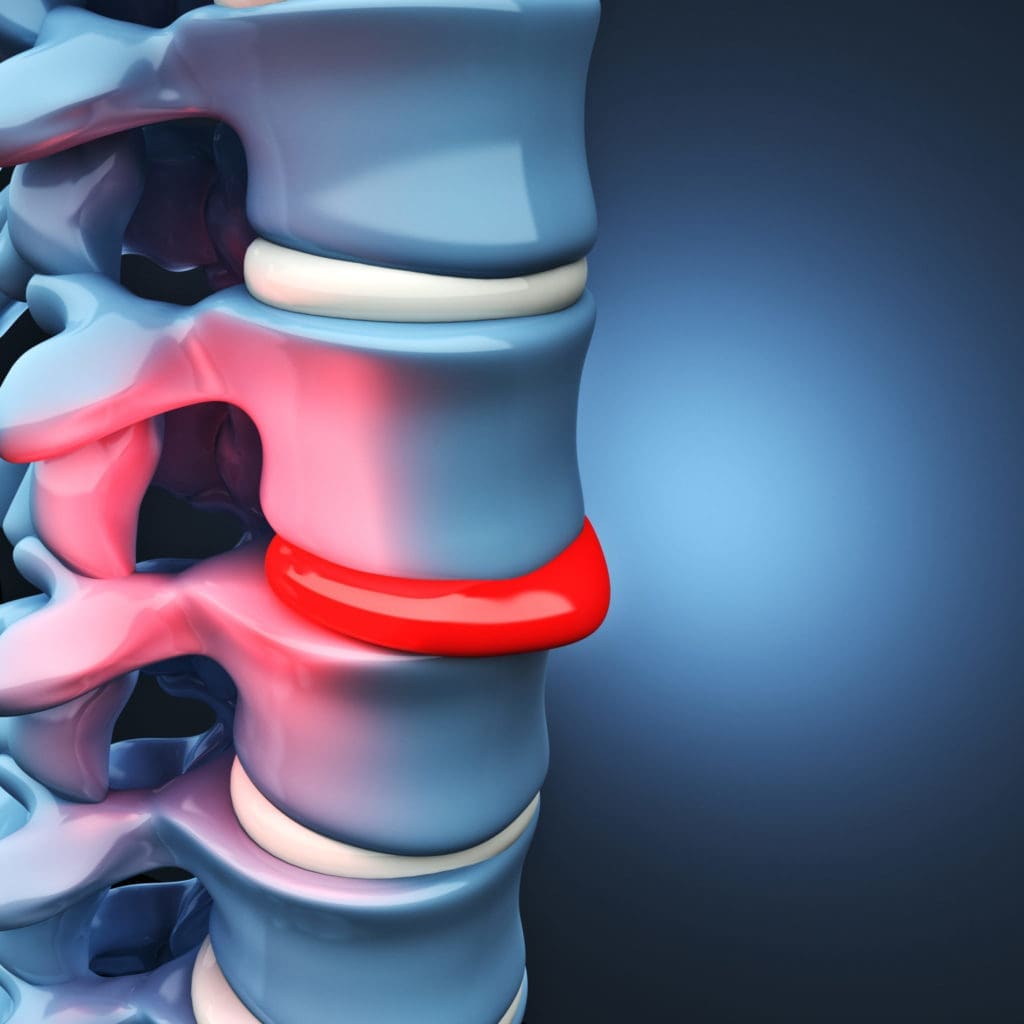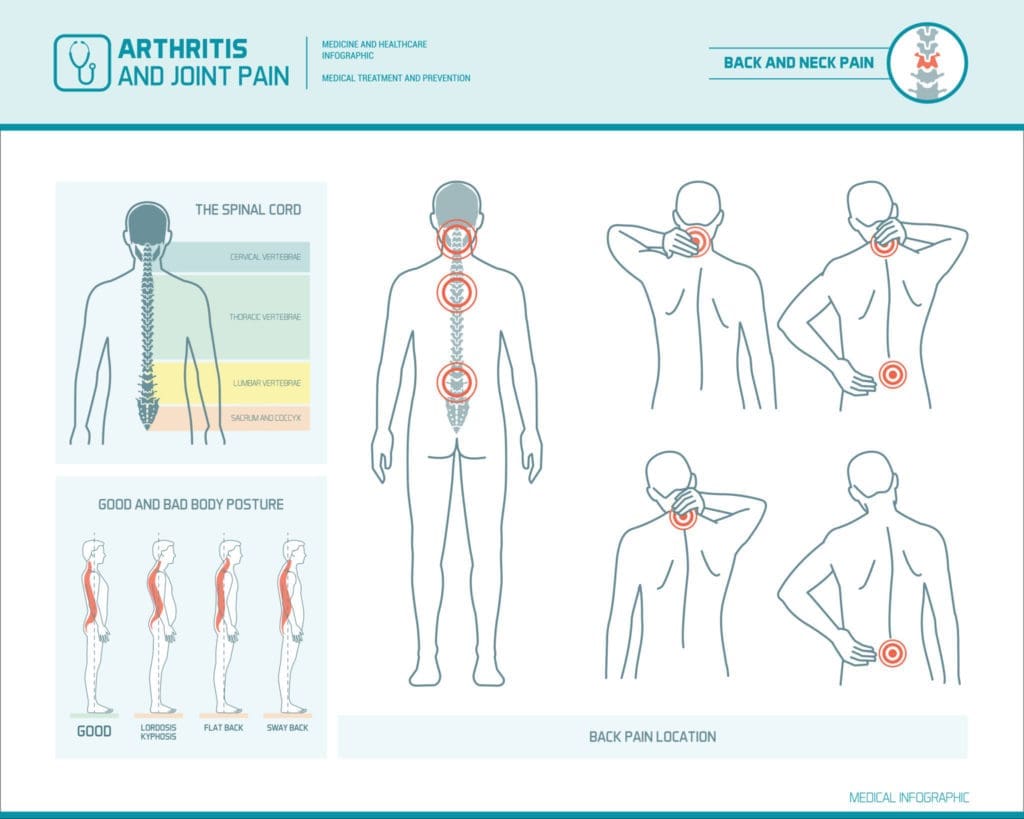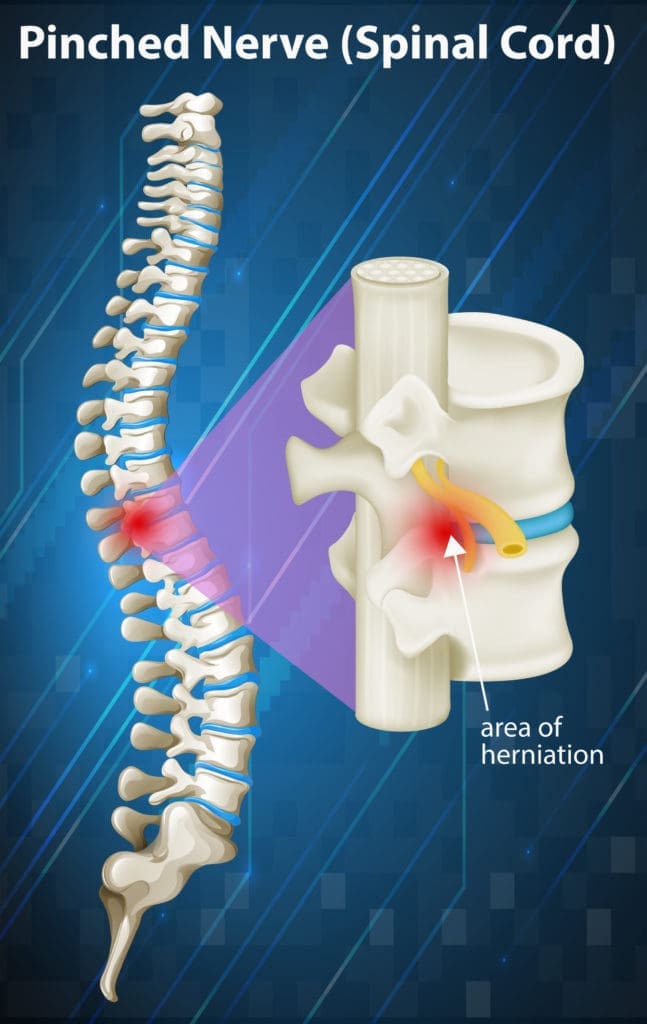Just about everyone has felt neck pain at some point. Whether you slept on it wrong or hit the gym a little too hard, neck pain happens. However, more serious issues may be at play when neck pain lasts for months or years. For people living with this long-term pain, they need chronic neck pain relief.
The causes of chronic neck pain can vary from pinched nerves to muscle strains. While some conditions may feel similar, these conditions have wildly different causes and treatments. In this article, we’ll look at each cause of chronic neck pain individually to understand how it happens and how to treat it.
Osteoarthritis: Common and Painful
Osteoarthritis is the most common form of arthritis, and it can be very uncomfortable for those living with it. This condition occurs when the cartilage between your bones deteriorates. Once your cartilage is gone or severely thinned out, it becomes harder for your joints to function properly, and you may experience inflammation and pain.
The damage doesn’t stop there, either. Osteoarthritis negatively affects the entire joint. As your bones rub together, it damages the delicate tissues that hold the joint together. The result is inflammation of the joint lining. When this happens in your upper spinal column (the cervical spine), it may cause neck pain.
Osteoarthritis Causes
The reason that osteoarthritis is such a common form of neck pain is that it has a variety of causes. People can develop this painful condition from any of the following causes:
- Older Age: Because osteoarthritis is a degenerative condition, people over 50 are much more likely to develop osteoarthritis than their younger counterparts.
- Sex: Women are more likely than men to develop this condition, although nobody is completely sure of the reason.
- Weight Gain: The more weight you have, the more pressure it puts on your joints. Additionally, fat tissue can contribute to inflammation in and around the sensitive joints in your neck and shoulders.
- Poor Posture: When you slouch or otherwise have poor posture, the weight of your head can get unevenly distributed. What this means is that part of your neck has to take on more weight than others, which can lead to osteoarthritis.
Osteoarthritis Symptoms
Other than just outright pain, there are a lot of other symptoms that come with osteoarthritis. Other symptoms include:
- Stiffness: As your joint health worsens, you may find it harder to move the affected joint. This sometimes means a stiff neck and may even a reduced range of motion.
- Bone Spurs: With long-term osteoarthritis, you may develop hardened clumps of bone around the joint. These are often uncomfortable, especially when you try to move your joint.
- Swelling: As inflammation increases around the joint, you may notice swelling near your neck or shoulders. This may also make it more difficult to move the affected joint.
Osteoarthritis Treatments
While there is no cure for osteoarthritis, there are still helpful treatments you can take advantage of. Treatments range from at-home remedies to medical procedures and include:
- Exercise: Simple exercises like walking around your neighborhood can help you lose or maintain weight, which means less pressure on your joints. Stay mobile, and use your pain as a guide for what exercises are working for you.
- Anti-Inflammatory Medications: As the name suggests, these medications help reduce the inflammation in your joints. Before deciding to take any medication long-term (even mild anti-inflammatories like ibuprofen), be sure to consult with a medical professional. This is to ensure you take the drugs in a safe manner.
- Surgery: Joint surgery is a last resort for people suffering from chronic neck pain. If you are considering this option, talk to your doctor to receive a referral to an orthopedic surgeon.
It is never too late to treat your osteoarthritis. If you are living with this condition, use the above treatments to finally get chronic neck pain relief.
Herniated Discs and the Cervical Spine


Also known as a slipped disc, a herniated disc happens when one of the “discs” between the vertebrae in your spinal cord is forced out of place. When a slipped disc occurs in the cervical spine, it can cause neck pain.
A common way to understand these discs is to think of them like jelly doughnuts. They’re harder on the outside and softer on the inside. With a herniated disc, the “jelly” inside escapes and can irritate nearby nerves and muscles, which causes your neck pain.
Herniated Disc Causes
Most often, herniated discs are the result of normal wear and tear that comes with aging. As a result, most people don’t have a specific mechanism of injury, or a specific trauma that causes this damage. Other than age, common risk factors include:
- Occupation or Hobbies: If your job or hobby requires you to be physically active, you’re at a higher risk of herniating a disc. This is especially true for people who complete repetitive motions throughout the day. This applies to people who deliver packages, enjoy gardening, or partake in any other physical, repetitive task.
- Genetics: While there is no known “herniated disc gene,” researchers have observed that people whose parents had slipped discs are more likely to have the condition as well.
Herniated Disc Symptoms
People with herniated discs often fall into one of two camps: those who experience neck pain, and those who have no symptoms. If you are experiencing neck pain and think it may be a slipped disc, here’s what you should look out for:
- A Numb or Tingling Feeling: In addition to pain, people with slipped discs often report numbness or tingling in their necks. This is the result of the disc irritating the nearby nerves.
- Weakness: Another common symptom is a general feeling of weakness in the affected area. If the slipped disc is in your cervical spine, you may find it harder to hold your head up without additional support.
Herniated Disc Treatments
Thankfully, surgery is almost never necessary for this condition. That said, many people with chronic neck pain from a slipped disc need pain management treatments to relieve their pain. Some of the most common treatments include:
- Hot and Cold Therapy: When a herniated disc irritates the surrounding neck muscles, you can relax them by alternating between hot and cold. Start with a cold compress for 10-15 minutes, then use a heating pad for the same amount of time. Do this until the pain subsides.
- Physical Therapy: If your pain is not going away on its own, consult a physical therapist. They’ll show you stretches, exercises, and good posture techniques to minimize your slipped disc pain.
- Oral Steroids: Steroids can help reduce inflammation caused by your herniated disc. Talk to your doctor about your options.
Pinched Nerve Root
You’ve probably heard of pinched nerves before, but you may not know how they happen. When a nerve root is injured, it can move away from the spinal cord. This causes pain that can radiate out into the neck and shoulder blades.
Pinched Nerve Causes
While a pinched nerve is its own separate issue, it can be caused by a variety of problems covered in this article. For example, a pinched nerve can be caused by any of the following:
- Herniated Discs: Remember how a herniated disc can irritate nearby nerves? In some cases, the surrounding nerves are compressed until they become pinched.
- Bone Spurs: Your body creates bone spurs to replace the cushioning of your missing cartilage. However, bone spurs can also irritate and pinch the nerves along your cervical spine.
- Osteoarthritis: Just like normal wear and tear can cause osteoarthritis, it can also lead to pinched nerves. This is why older adults are at an increased risk of pinching nerves in their cervical spines.
Pinched Nerve Symptoms
Like the other chronic neck pain causes in this article, there are additional symptoms of pinched nerves. You might have a pinched nerve if you’re experiencing:
- Burning Pain: Many people with pinched nerves describe their pain as burning or radiating. Note that pain around the shoulder blades can still come from a pinched nerve in the cervical spine.
- Numbness and Tingling: In addition to a numb feeling, a pinched nerve can cause you to feel that the affected area has “fallen asleep.” Some people also report a “pins and needles” feeling when the numbness subsides.
Pinched Nerve Treatments
If you’re looking for chronic neck pain relief, try the following treatments for pinched nerves:
- Neck Exercises: Even if you don’t have a gym membership, there are at-home neck exercises you can do to fix your pinched nerve. These will strengthen your neck muscles, which could solve or reduce your chronic neck pain. As your muscles heal and grow stronger, this can take some of the pressure off of your pinched nerve.
- Chiropractic: A chiropractor will work with your spinal column to ease any pressure on your nerves. They will also advise you on at-home pain management treatments to suit your unique situation.
- Invest in Pillows: Sometimes, the way you’re sleeping can cause or worsen a pinched nerve. Use pillows to make sure your head is elevated and aligned with your spine. After a few nights, you should notice reduced chronic neck pain.
Get Chronic Neck Pain Relief
Chronic neck pain can be distressing. You might experience a stiff neck, pain, or even a lessened range of motion. It’s important that you understand that you can get help and find relief.
People with neck pain can and do find relief. Whatever the cause of your neck pain, you deserve to have it resolved. Use the above information to identify the cause of your chronic neck pain and find pain management strategies that work for you.
Neck pain can be stressful, regardless of the cause. If you’re experiencing stiffness, pain, or even a reduced range of motion, know that you can get help and find relief from your doctor, who may send you to a physical therapist or another medical professional.
If you get an MRI or x-ray performed, be aware that whatever the images show do not label you. Other people without neck pain may have the same images without symptoms. That’s why it’s important to see a medical professional about your pain.
How do you treat your chronic neck pain?
Share your story in the comments below!
What chronic neck pain topics should we cover?
Email us at info@painresource.com with your ideas!
Are you on Facebook?
Join our online community by clicking here.






